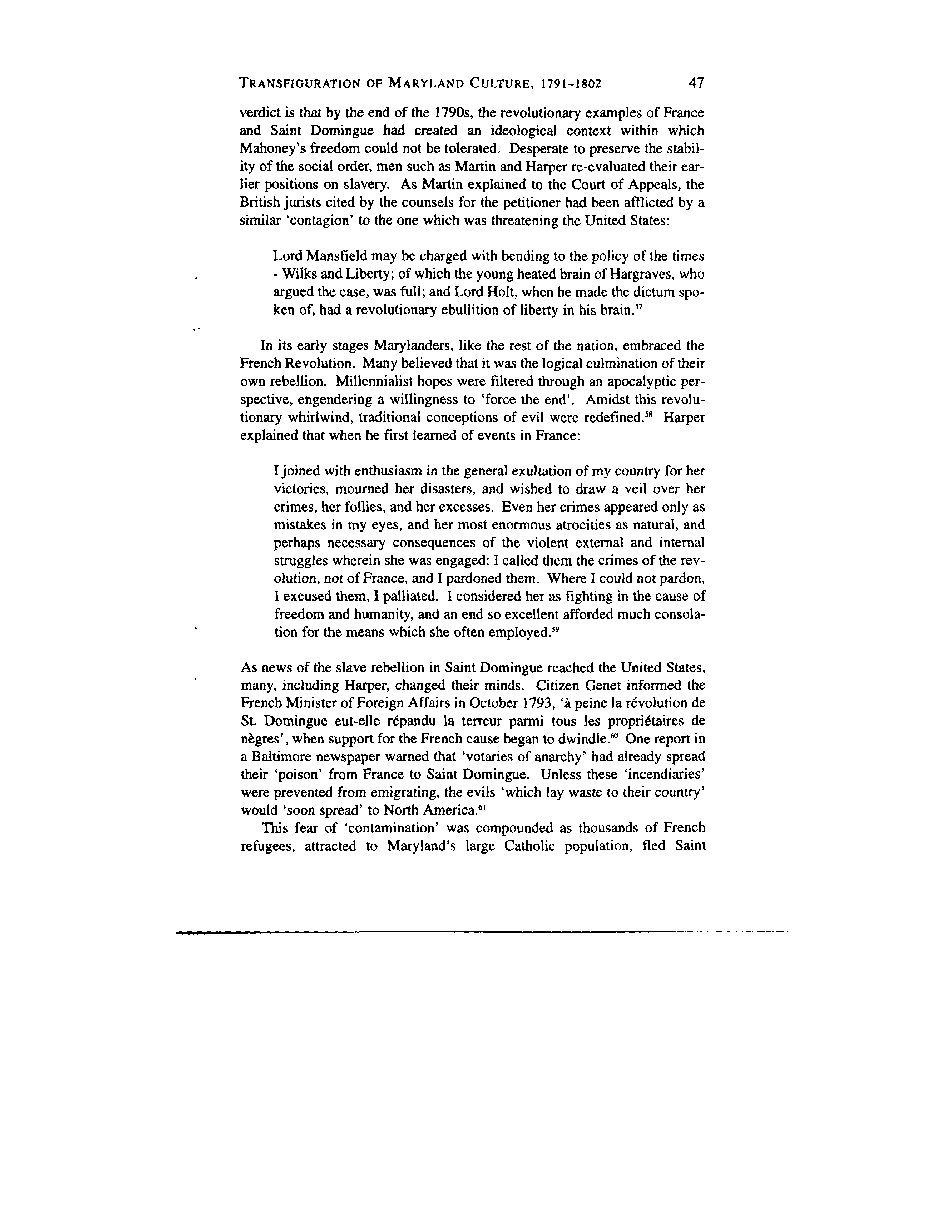|
TRANSFIGURATION OF MARYLAND CULTURE, i?9i-i802 47
verdict is that by the end of the 1790s, the revolutionary examples of France
and Saint Domingue had created an ideological context within which
Mahoney's freedom could not be tolerated. Desperate to preserve the stabil-
ity of the social order, men such as Martin and Harper re-evaluated their ear-
lier positions on slavery. As Martin explained to the Court of Appeals, the
British jurists cited by the counsels for the petitioner had been afflicted by a
similar 'contagion' to the one which was threatening the United States:
Lord Mansfield may be charged with bending to the policy of the times
- Wilks and Liberty; of which the young heated brain of Hargraves, who
argued the case, was full; and Lord Holt, when he made the dictum spo-
ken of, had a revolutionary ebullition of liberty in his brain."
In its early stages Marylanders, like the rest of the nation, embraced the
French Revolution. Many believed that it was the logical culmination of their
own rebellion. Millennialist hopes were filtered through an apocalyptic per-
spective, engendering a willingness to 'force the end'. Amidst this revolu-
tionary whirlwind, traditional conceptions of evil were redefined.5" Harper
explained that when he first learned of events in France:
I joined with enthusiasm in the general exultation of my country for her
victories, mourned her disasters, and wished to draw a veil over her
crimes, her follies, and her excesses. Even her crimes appeared only as
mistakes in my eyes, and her most enormous atrocities as natural, and
perhaps necessary consequences of the violent external and internal
struggles wherein she was engaged: I called them the crimes of the rev-
olution, not of France, and I pardoned them. Where I could not pardon,
I excused them, I palliated. I considered her as fighting in the cause of
freedom and humanity, and an end so excellent afforded much consola-
tion for the means which she often employed.5'
As news of the slave rebellion in Saint Domingue reached the United States,
many, including Harper, changed their minds. Citizen Genet informed the
French Minister of Foreign Affairs in October 1793, 'a peine la revolution de
St. Domingue eut-elle repandu la terreur parmi tous les proprietaires de
negres', when support for the French cause began to dwindle.60 One report in
a Baltimore newspaper warned that 'votaries of anarchy' had already spread
their 'poison' from France to Saint Domingue. Unless these 'incendiaries'
were prevented from emigrating, the evils 'which lay waste to their country'
would 'soon spread' to North America."
This fear of 'contamination' was compounded as thousands of French
refugees, attracted to Maryland's large Catholic population, fled Saint
�
|

